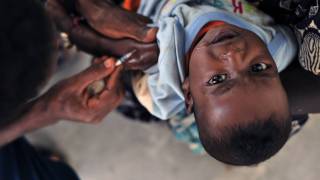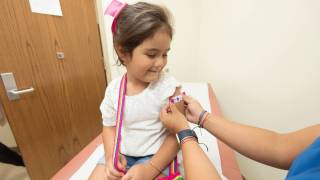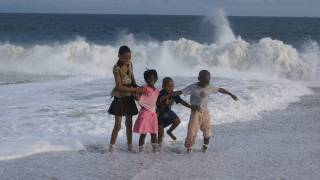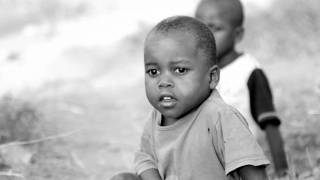8 New Polio Cases Confirmed During 2019
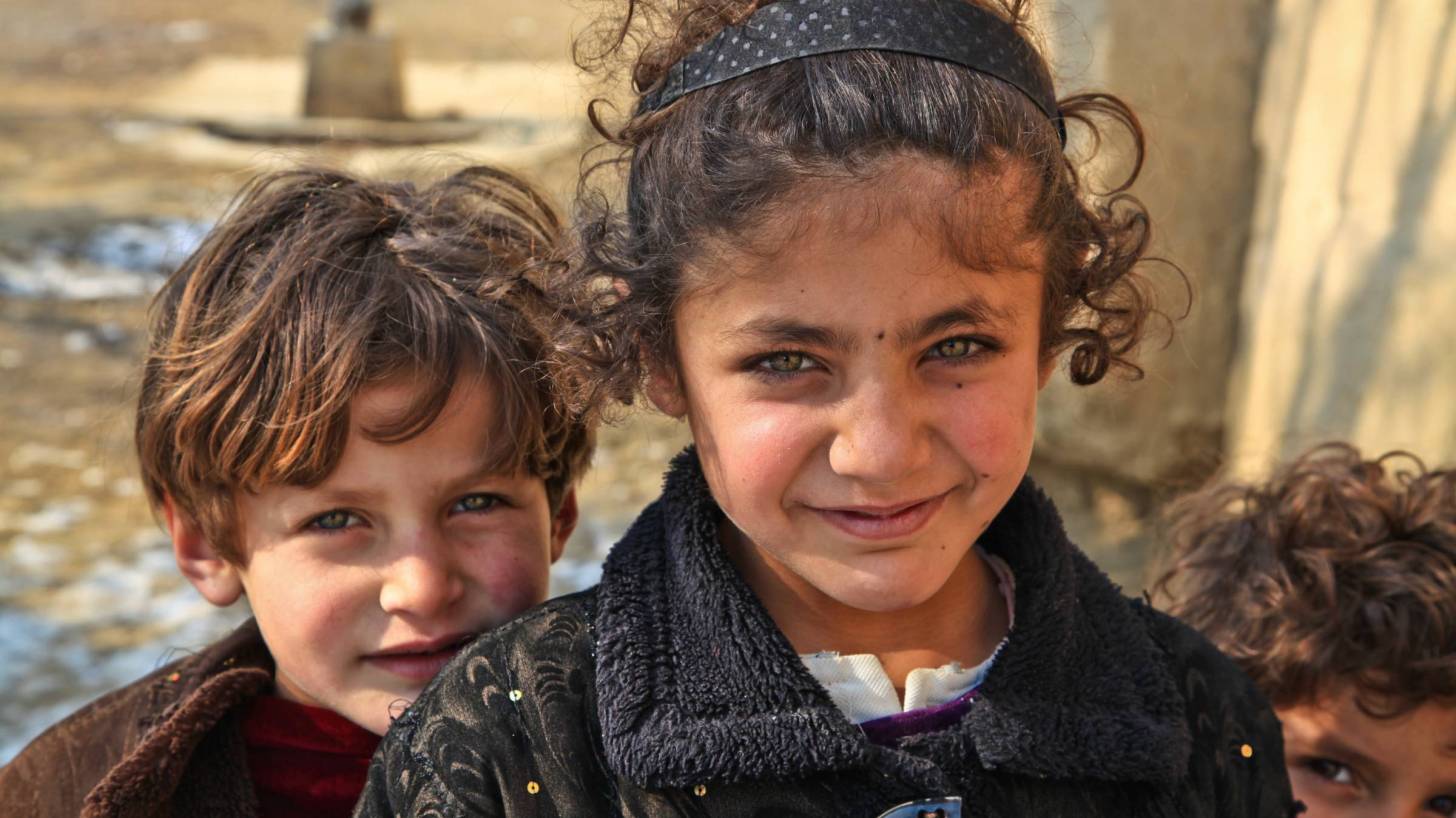
The Global Polio Eradication Initiative (GPEI) weekly report noted 8 new polio cases have been confirmed during 2019.
The March 27th GPEI report confirmed polio cases in Pakistan (2) involving wild poliovirus type 1 (WPV1), and in Nigeria (2) involving circulating vaccine-derived poliovirus type 2 (cVDPV2).
Dr. Tedros Adhanom Ghebreyesus, the World Health Organization (WHO) Director-General and Chair of the Polio Oversight Board, said in a press release that he ‘urged everyone involved in the GPEI to ensure polio will finally be assigned to the history books by 2023.’
Polio is caused by the poliovirus, which spreads from person to person, by drinking water or eating food that is contaminated with infected feces.
In certain cases, polio can invade an infected person’s brain and spinal cord, causing paralysis, says the Centers for Disease Control and Prevention (CDC).
The weekly GPEI report includes the following country-based updates:
- Afghanistan:
- No wild poliovirus type 1 (WPV1) cases were reported in the past week. There are two WPV1 cases reported in 2019. The total number of WPV1 cases for 2018 remains 21.
- No WPV1-positive environmental samples were reported in the past week.
- The Technical Advisory Group (TAG) for polio eradication met on 15-16 January 2019 to assess the progress made towards polio eradication in Afghanistan in 2018 and made recommendations for the way forward in 2019.
- Read the latest polio update from Afghanistan to see information on cases, surveillance and vaccination campaigns.
- Central Africa:
- No cases of circulating vaccine-derived poliovirus type 2 (cVDPV2) were reported this week in the Democratic Republic of the Congo (DRC). The total number of cVDPV2 cases reported in 2018 is 20.
- The most recent cVDPV2 AFP case was reported from the Mufunga-Sampwe district in the Haut-Katanga province with the onset of paralysis on 7 October 2018.
- DRC is affected by four separate cVDPV2 outbreaks, in the provinces of Haut Katanga; Mongala, Maniema and Haut Lomami/Tanganyika/Haut Katanga/Ituri.
- Read the latest on the Democratic Republic of the Congo to see information on surveillance and vaccination campaigns.
- Learn more about vaccine-derived polioviruses through this short animation or this ‘Coffee with Polio Experts’
- Horn of Africa:
- No circulating vaccine-derived poliovirus type 2 (cVDPV2) cases were reported in the past week.
- The Horn of Africa is currently affected by separate outbreaks of circulating vaccine-derived poliovirus type 2 (cVDPV2) and type 3 (cVDPV3), reporting both AFP cases and environmental positive samples.
- Somalia has reported a total of 12 cVDPV cases (five type 2, six type 3 and one, coinfection of both type 2 and type 3) in 2018.
- The most recent cVDPV2 virus was isolated from an environmental sample collected on 11 October 2018 from Waberi district in Banadir province.
- The most recent cVDPV3 virus was isolated from an environmental sample also from Waberi district, Banadir province collected on 23 August 2018.
- Circulating VDPV2 has also been detected during 2018 in one environmental sample in Kenya collected on 21 March 2018.
- Outbreak response to both virus types is currently being implemented in line with internationally-agreed guidelines. Large-scale supplementary immunization activities (SIAs) have been implemented in Banadir, Lower Shabelle and Middle Shabelle regions, Somalia.
- WHO and partners continue to support local public health authorities across the Horn of Africa in conducting field investigations and risk assessments.
- Read the latest polio update for Somalia and Kenya to see information on surveillance and vaccination campaigns.
- Indonesia:
- No circulating vaccine-derived poliovirus type 1 (cVDPV1) cases were reported this week.
- In total, three genetically-linked circulating vaccine-derived poliovirus type 1 (cVDPV1) isolates were detected from Papua province. In addition to the above-listed isolate, cVDPV1 was isolated from an acute flaccid paralysis (AFP) case, with the onset of paralysis on 27 November 2018, and from a sample of a healthy community contact, collected on 24 January 2019. This outbreak is not linked to the cVDPV1 currently affecting neighboring Papua New Guinea.
- The GPEI and partners are working with country counterparts to support the local public health authorities in conducting a field investigation (clinical, epidemiological and immunological) and thorough risk assessment to discuss planning and implementation of immunization and outbreak response.
- Lake Chad Basin:
- No case of circulating vaccine-derived poliovirus type 2 (cVDPV2) has been reported in the past week. The most recent cVDPV2 isolated in the country was in Magaria district, Zinder province with the onset of paralysis on 5 December 2018.
- The total number of cVDPV2 cases in 2018 reported in Niger in 2018 is ten. The outbreak is genetically-linked to the cVDPV2 outbreak originating in Jigawa, Nigeria. The virus was isolated from children with acute flaccid paralysis (AFP) from Zinder region, located in the south of Niger and on the border with Nigeria, with dates of onset of paralysis ranging from 18 July through 5 December 2018.
- Acute flaccid paralysis surveillance and routine immunization across the country with a focus on the infected provinces and the provinces at the international borders with Nigeria are being reinforced.
- Active case finding for additional AFP cases is continuing, and additional surveillance measures such as increasing the frequency and extent of environmental surveillance and community sampling of healthy individuals being expanded.
- Mozambique:
- No case of circulating vaccine-derived poliovirus type 2 (cVDPV2) outbreak has been reported this week. The total number of cases in 2018 remains 1.
- One circulating vaccine-derived poliovirus type 2 (cVDPV2) isolate was detected, from an acute flaccid paralysis (AFP) case (with onset of paralysis on 21 October 2018, in a six-year-old girl with no history of vaccination, from Molumbo district, Zambézia province), and two isolated from a community contact of the case reported on 10 and 17 December 2018.
- The GPEI and partners are working with country counterparts to support the local public health authorities in conducting a field investigation (clinical, epidemiological and immunological) and thorough risk assessment to discuss planning and implementation of immunization and outbreak response.
- In January 2017, a single VDPV2 virus had been isolated from a 5-year old boy with AFP, also from Zambézia province (Mopeia district). Outbreak response was conducted in the first half of 2017 with monovalent oral polio vaccine type 2 (mOPV2).
- Read the latest polio update for Mozambique to see information on cases, surveillance and response to the developing outbreak.
- Nigeria:
- Two cases of circulating vaccine-derived poliovirus type 2 have been reported this week in Konduga LGA, Borno State and Baruten LGA, Kwara State with the onset of paralysis reported on 14 February and 20 February 2019 respectively. There are now four cVDPV2 cases reported in 2019 so far. The total number of cVDPV2 cases in 2018 remains 34.
- One cVDPV2-positive environmental sample has been reported this week in Maiduguri, Borno State. The sample was collected on 26 February 2019.
- No cases of wild poliovirus type 1 (WPV1) has been reported in the country since the one detected from Borno State with a date of onset of paralysis on 21 August 2016.
- The country continues to be affected by two separate cVDPV2 outbreaks, the first centered in Jigawa State with subsequent spread to other states as well as to the neighboring Republic of Niger, and the second in Sokoto State.
- Recent confirmation of spread of one of the cVDPV2 outbreaks, both within Nigeria and internationally, underscores the urgent need to fill remaining vaccination gaps in the ongoing outbreak response and to optimize the geographic extent and operational quality of mOPV2 response.
- At the same time, outbreak response to WPV1 continues, including efforts to address surveillance and immunity gaps in parts of Borno State.
- Read the latest polio update for Nigeria to see information on surveillance and vaccination campaigns.
- Pakistan:
- Two cases of wild poliovirus type 1 (WPV1) were reported this week: one in Khyber District, Khyber Pakhtunkhwa Tribal District (KPTD) and one in Layari in Karachi, Sindh province. The onsets of paralysis were on 14 February 2019 and 25 February 2019 respectively. There are now a total of six WPV1 cases reported in 2019. The total number of WPV1 cases in 2018 remains 12.
- 15 WPV1-positive environmental samples were reported in the past week: four from Lahore district, Punjab province; one each from Saddar, Liaqat, Baldia Town, Orangi Town and two from Gadap in Karachi, Sindh province; one from Hyderabad district, Sindh province; one from Killa Abdullah and one from Quetta in Balochistan province; one each from Kohat and Bannu in Khyber Pakhtunkhwa province.
- The samples were collected from 27 February 2019 to 12 March 2019. So far in 2019, a total of 65 environmental positive samples have been reported. The full-year 2018 total remains 140.
- Read the latest polio update from Pakistan to see information on cases, surveillance and vaccination campaigns.
To alert USA citizens, the CDC issued various Travel Alerts, which recommend that all travelers to these countries be fully vaccinated against polio.
The CDC says adults who completed their routine polio vaccine series as children should receive a single, lifetime adult booster dose of the polio vaccine.
And, the CDC recommends that all infants and children in the USA be vaccinated against polio, as part of a routine, age-appropriate vaccination series.
Besides the polio vaccination, the CDC suggests you are up-to-date on several Routine Vaccines before visiting these countries.
These vaccines and related medications can be found at most ‘travel-pharmacies’ in the USA.
Pre-trip, vaccine and medication counseling appointments can be scheduled at Vax-Before-Travel.
Our Trust Standards: Medical Advisory Committee








